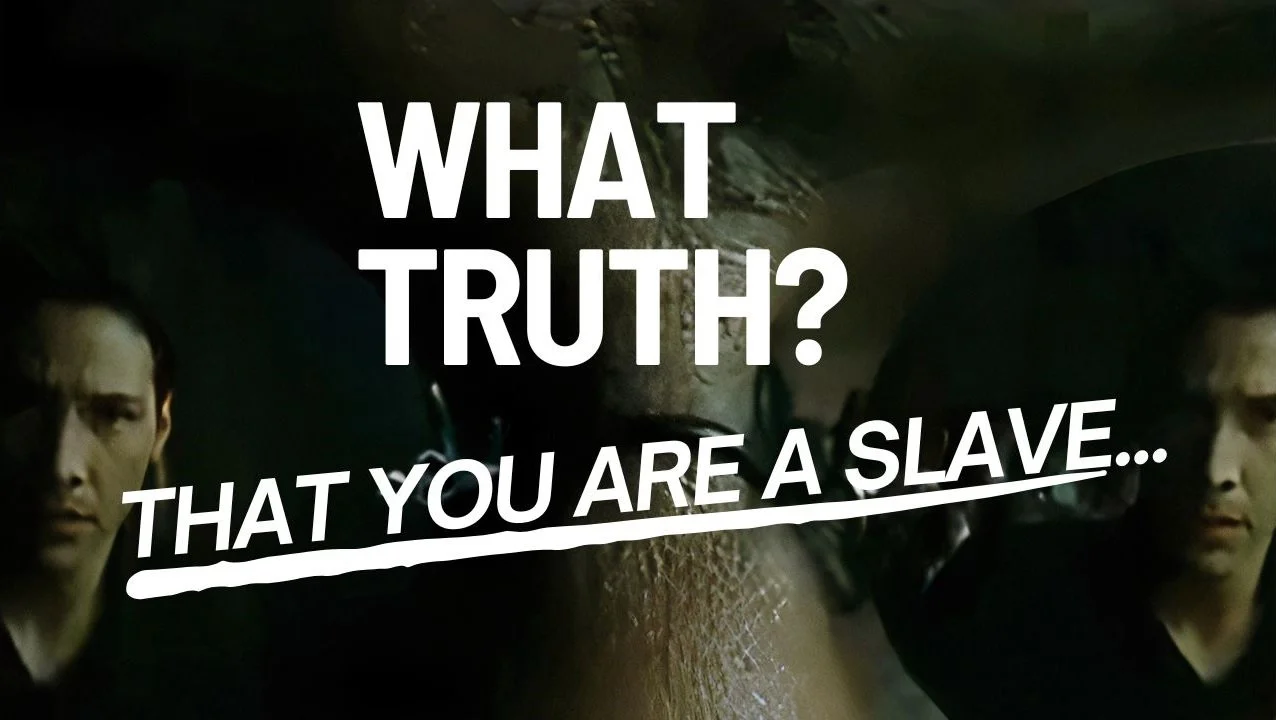Do Not Be a Slave…
Morpheus Offering the Truth to Neo in The Matrix (1999)
The United Nations (UN) International Court of Justice (ICJ) has just weighed in on potentially genocidal violations in the ongoing humanitarian catastrophe in Gaza (Palestine). The court explicitly called on Israel to take specific measures that would prevent (further) genocidal violations. As for the final verdict of the court on whether or not Israel is guilty of the violations, that may take a while. It is also important to keep in mind the following blind spots that may have been missed/omitted from most media coverage on this court order. Ready for them?
Notice two things in particular that I have not come across in the media on this yet:
1) The introduction to the court order document portrays the narrative of things starting on October 7, 2023 (instead of Palestinian narratives related to recent violations/threats against the Aqsa Mosque in Jerusalem, the siege of Gaza for years, the ongoing occupation of Palestinian land, the catastrophe for Palestinians in 1948, let alone the earlier history of conflict leading up to it). Having a sense of history is arguably necessary for an accurate understanding of the present and to have a fighting chance at avoiding the mistakes of the past. While some legal professionals may claim that the longer history is not as relevant for passing a court judgment on present violations, I would argue that at the very least there is an ethical responsibility to future humans that the court note the contextual history of the conflict for the official record. This is not about changing the final ruling on the matter, but of approach when it comes to this human record so many have set their hopes on.
2) The document calls for an immediate and unconditional release of the “hostages abducted during the attack in Israel on 7 October 2023” (85). While this appears justified on humanitarian grounds when applied across the board, the double standard is arguably a key reason why the Palestinian-Israeli conflict has persisted for so long to begin with. Palestinians have been demanding the release of Palestinian prisoners (including woman and children) held by Israel for decades and generally view a potential swap agreement not as a resolution to a hostage crisis but as an exchange of prisoners of war (POWs). The court document seems to completely ignore prominent Palestinian narratives.
Regardless what else the court is saying, keep in mind whose narrative is being privileged as the assumed “matrix” for the proceedings, blind spot or not. Nonetheless, many have lauded the move as a step in the right direction ––one that raises awareness and provides a glimmer of hope for justice coming in the form of a court ruling by an internationally recognized body.
Granted, justice on Earth may come with too little too late, and worldly conflicts are more practically addressed through negotiated compromise (not absolute justice; Divine justice is another story though). But without a bare minimum of humanity and justice, no lasting peace is to be expected by a reasonable observer.
Perhaps the words of Grand Ayatollah Sistani represent this pragmatic outlook best when he recently wrote, “Ending the tragedy of the respected people of Palestine, which has persisted for seven decades, by granting them their legitimate rights and removing the occupation from their usurped lands is the only way to bring security and peace to this region. Without this, resistance to the aggressors will continue and the cycle of violence will keep on claiming more innocent lives.”
The zeal for that basic human dignity can be visualized as a phoenix that rises from the ashes. Any “victory,” let alone a Pyrrhic one, against human dignity is a moral failing beyond measure ––assuming such a so-called “victory” were possible at all. The words attributed to the Imam Ali (d. 661), as recounted in Nahj al-Balāghah, arguably speak to the souls of dignified human beings worldwide when he says, “Do not be a slave of someone else when God has made you free.” It is time to take the lessons of history and humble ourselves, to negotiate and save whatever is left of humanity.
If you find these posts useful, remember to follow, like, and share. Interested in a more rigorous format of engagement? Consider reaching out for further discussion, and check out the Spring 2024 courses here.
Intro to this Blog
I have been considering the pros and cons of focusing this blog on a particular theme or intended readership. With all the merits of specialization, I submit that my academic specialization has me niched enough for the rest of my time on Earth, and that I will be looking forward to this blog as a more diversified avenue of expression. It will still be me, just not always the PhD dissertation mode of me. For that, I beg your pardon, you will have to wait for the occasional academic study I announce here, or read parts of my dissertation (hint to fellow academics, in particular). So you can expect this blog to shed light on the more far-reaching implications of my work as an academic, tailored to a diverse and broad readership, weighing in on current events while also contextualizing and drawing lessons from history. Without further ado, welcome to Ali Moughania’s blog!
